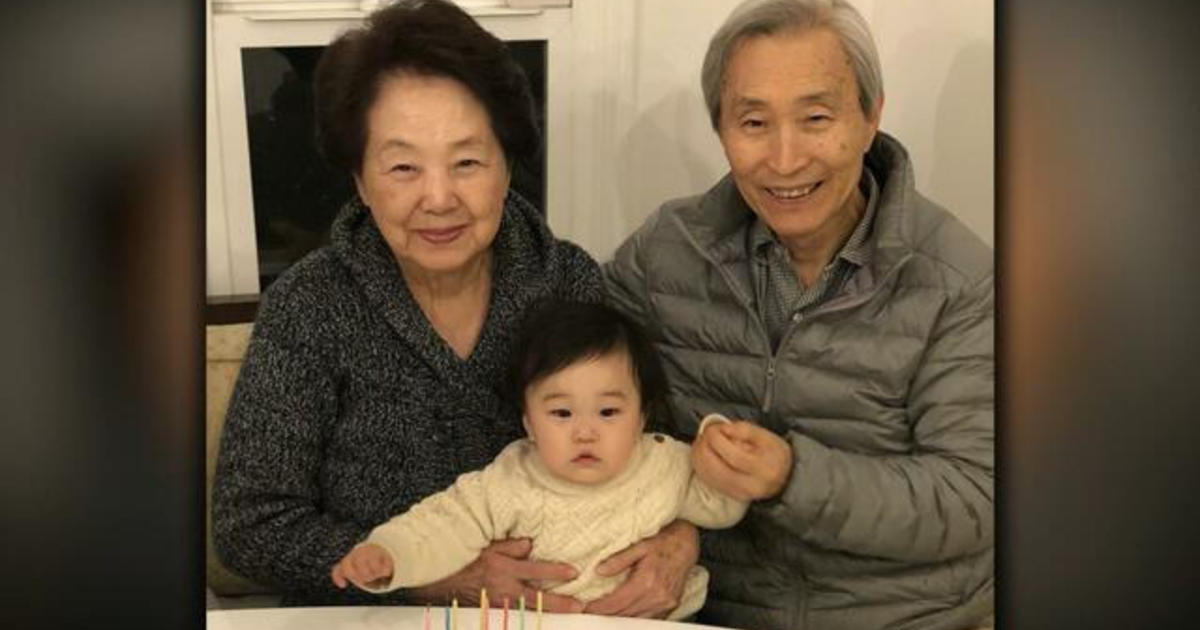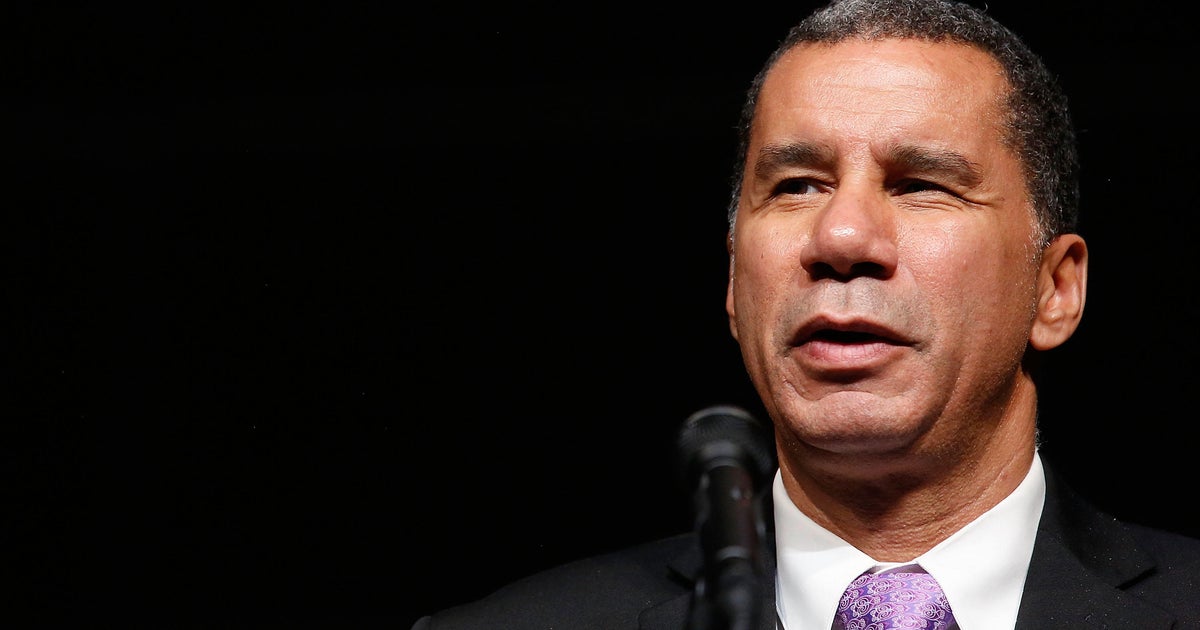CBS News
The dual challenge of the sandwich generation: Raising children while caring for aging parents

Between now and 2030, about 10,000 Americans will turn 65 every single day, highlighting a growing concern about the nation’s preparedness for elder care often falling on the shoulders of their adult children. This has given rise to a term known as the “sandwich generation,” defined as adults who find themselves caring for their aging parents while still raising their own children.
Lisa Ling is a CBS News contributor and part of the sandwich generation herself. Ling’s family is part of nearly 80 million Americans taking care of children and our elderly parents at the same time.
Ling’s husband, Paul, typically helps get their two young daughters ready for school. However, on some days, he rushes to assist his 92-year-old mother, Grace, with her medical appointments. She has faced several trips to the emergency room and and rehabilitation stays in recent months. Mornings, Ling said, are often “hectic” in their home as they juggle the responsibilities of taking care of parents and children.
“At a certain point, your parents become like kids,” Ling said.
Lauren Shin is another caregiver. Since her parents moved in with her in 2017, Shin has navigated the complexities of her mother’s deteriorating health and eventual Alzheimer’s disease diagnosis while raising two young children.
“In the first few months, it was still okay. It just seemed like a lot of nonsense talking from her, but then there was a switch. She would tell me to shut up with profanity words. Sometimes she would look at me as if she could kill with her eyes, and I would say something, and she’d be like, you don’t know what you’re talking about,” said Shin.
Alzheimer’s disease can lead to delusions and sometimes violent behavior, according to health experts, which makes care challenging. At first, it was Shin’s father who took it on, spoon-feeding her and talking to her.
“There was not a moment that he wasn’t by her side,” Shin said.
After two years, her mother’s condition continued to decline. But it wasn’t until Shin gave birth to her second child that she knew something had to change.
“It was hard. I had postpartum. I was trying to heal and take care of a newborn and a 6-year-old, and I didn’t know how to handle all that at first. So it was a lot of nights of screaming and crying into my pillow,” said Shin.
Shin’s family decided it would be better and safer for if her mother could move into a memory care facility. They found what they were looking for an hour away in Anaheim, California, where the majority of the residents are Korean American, like Shin’s mother. Shin said her mother has adjusted to the home and has made friends, but the first few months were hard.
“I heard she was screaming for my dad, and then a shift happened, and they said this would happen. And she met some friends that she always hangs out with and sits with and eats with,” Shin said.
The move was partly financed through California’s Medicaid program, called Medi-Cal, which supports individuals with little to no income. In many states, costs for memory care facilities can exceed $10,000 per month out of pocket.
Nicole Jorwic from the organization Caring Across Generations warned that not everyone should expect Medicaid to cover such facilities due to long waitlists and stringent financial qualifications. Jorwic said the waitlist is over 750,000 people long.
“States can limit how many people they’re gonna serve. And also the federal government has limits about how much money people can have in order to receive those services. So Medicaid really requires people to spend down their assets or … remain in poverty in order to access, long-term care,” said Jorwic.
Meanwhile, Ling’s family has been fortunate to keep Paul’s mother at home, while Ling’s own father spent his final days in a facility funded by his government pension and savings, which would have only lasted two more years.
Shin and her family are grateful to have found a safe place for her mom. But as a sandwich caregiver, Shin still has young kids and an aging father at home. However, she said she has hope that things will improve and offered advice for those in her situation.
“It does get better,” she said. “The kids will get older, they will become a little bit more self-sufficient, and they won’t need you as much. And the elderly, I just want people to know they don’t want to be the ones needing help either. And this is my turn to give back for all their hard work.”
Caregiving Resources:
The new “CBS Mornings” series “Cost of Caregiving” explores the challenges of caring for America’s aging population. While some have made the difficult decision to move their aging parents into a facility, for many, this option is out of reach due to affordability, qualification criteria, or limited availability at these facilities. Tune in for more on this topic this Thursday.
CBS News
The Uplift: Steve Gleason and more

Watch CBS News
Be the first to know
Get browser notifications for breaking news, live events, and exclusive reporting.
CBS News
Eye on America: Inside an extreme sports camp, and a look at how libraries are innovating

Watch CBS News
Be the first to know
Get browser notifications for breaking news, live events, and exclusive reporting.
CBS News
Former New York Gov. David Paterson, stepson attacked while walking in New York City

NEW YORK — Former New York Gov. David Paterson and his stepson were attacked in New York City on Friday night, authorities said.
The incident occurred just before 9 p.m. on Second Avenue near East 96th Street on the Upper East Side, according to the New York City Police Department.
Police said officers were sent to the scene after an assault was reported. When officers arrived, police say they found a 20-year-old man suffering from facial injuries and a 70-year-old man who had head pain. Both victims were taken to a local hospital in stable condition.
In a statement, a spokesperson for the former governor said the two were attacked while “taking a walk around the block near their home by some individuals that had a previous interaction with his stepson.”
The spokesperson said that they were injured “but were able to fight off their attackers.”
Both were taken to Cornell Hospital “as a precaution,” he added.
Police said no arrests have been made and the investigation is ongoing.
The 70-year-old Paterson, a Democrat, served as governor from 2008 to 2010, stepping into the post after the resignation of Eliot Spitzer following his prostitution scandal. He made history at the time as the state’s first-ever Black and legally blind governor.

